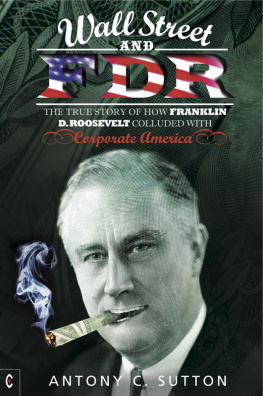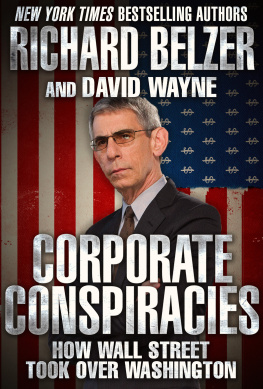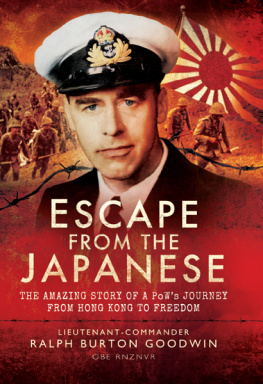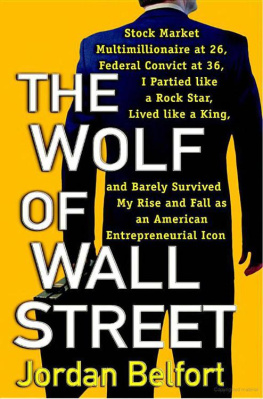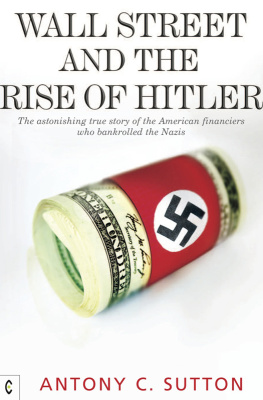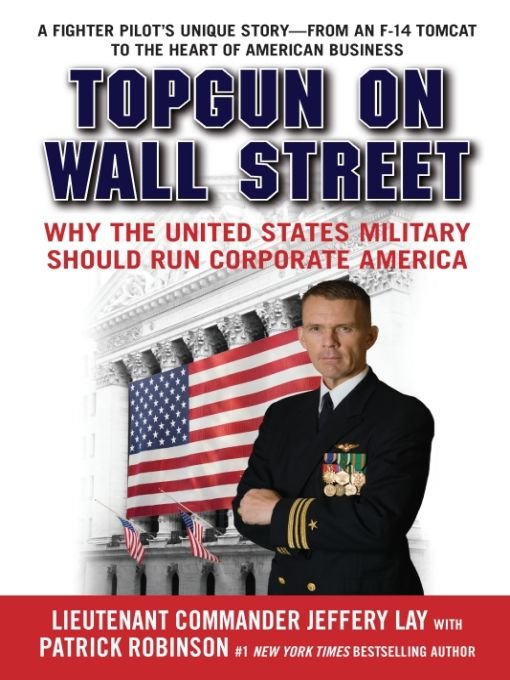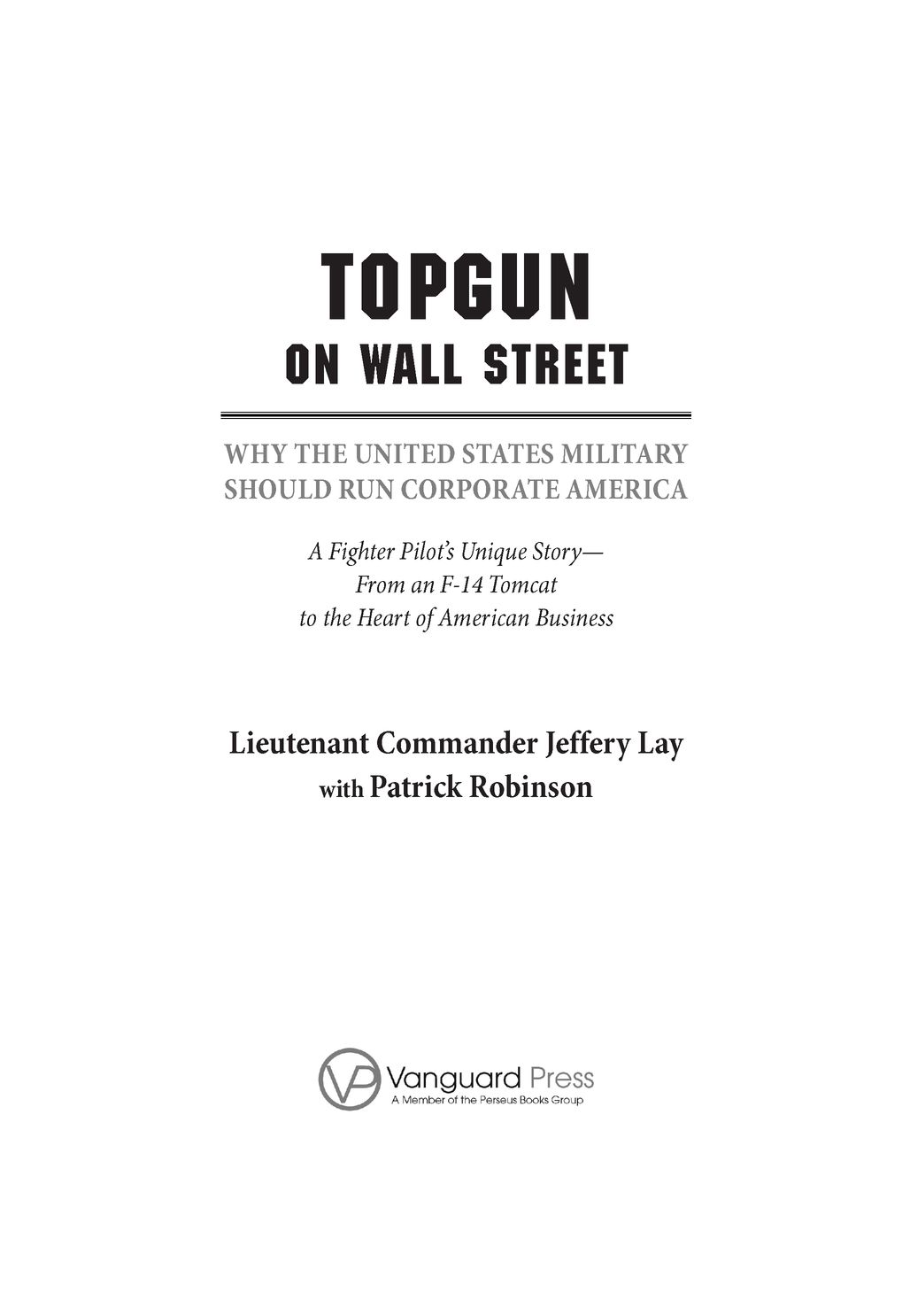Table of Contents
Most of us, most of the time, live in blissful ignorance of what a small, elite, heroic group of Americans are doing for us night and day. As we speak, all over the globe, American sailors and submariners and aviators are doing something very dangerous. People say, Well, it cant be too dangerous because there are no wrecks. But the reason we dont have more accidents is that these are superb professionals; the fact that they master the dangers does not mean the dangers arent real.
Right now, somewhere around the world, young men are landing high-performance jet aircraft on the pitching decks of aircraft carriersat night! You cant pay people to do that; they do it out of love of country, of adventure, of the challenge. We all benefit from it, and the very fact that we dont have to think about it tells you how superbly theyre doing their jobliving on the edge of danger so the rest of us need not think about, let alone experience danger.
GEORGE F. WILL, Pulitzer Prize winner
and #1New York Timesbestselling author
For Us
AUTHORS NOTE
TOPGUN on Wall Street, while loosely autobiographical, has one driving force behind its narrative: the demarcation line between military and civilian management philosophies. The majority of this story inevitably concentrates on the significant gulf between military beliefs, training, demands, and honor, and the diametrically opposed civilian dog-eat-dog ethos, breathtaking personal greed and susceptibility to convenient lies, frequently on a Wagnerian scale.
My first experience of this military-civilian clash involved my service as a Naval Aviator flying strike fighter combat missions from a giant US aircraft carrier parked in the middle of the Gulf of Iran at the turn of the twenty-first century. We were flanked to the east by the menacing shores of the Islamic Republic of Iran, while we in turn glared hard west toward the distant shores of the Republic of Iraq. Because there, the half-crazed Lion of Babylon, Saddam Hussein, swore by all that was holy to blow the US air patrols out of the sky.
We could, of course, have dealt with this quasi-Iraqi warrior in about twelve minutes, except for one thing. The White House had decided to assume command of Americas front-line muscle, the 1,000 mph TOPGUN fighter pilots. For the first time, the guys at the Tip of the Spear were under their direct civilian command while operating in a war zone.
The result was a phony war, right out there in the vaunted no-fly zone. It was a hideous situation, and it resulted in shocking mistakes, which had inevitably catastrophic and bloody consequences. Worse yet, it drove some of the finest United States Naval Aviators out of the service we all loved. I was personally tortured mentally by all this. How could these clever, accomplished presidential advisors possibly demonstrate such foolishness? A better question might have been, how could they ever be so uncompromisingly arrogant as to dismiss entirely the considered views of the best brains in the US military? I actually thought it might be some kind of aberration. But I spent the next dozen years finding out there was nothing unusual about these apparently eccentric civilian decisions. They make them all the time, in politics, in their dealings with the military, and in corporate life. They constantly repeat their mistakes; they operate in a way that is self-centered in the extreme. And there may be no way out for them or for the nation.
Unless, of course, the peerless US military was given leave to run corporate America. This may seem radical. Yet the selfless teamwork of Americas men and women in uniform very likely holds the key to resurrection. So many times we have delivered this nation from the abyss, because America represents the greatest nation in history. Is it salvageable? Of course it is. If only we listen to that hidden voice that comes from the universea voice of fairness and reason that has always governed the United States.
I thus begin my story with a short factual account of Saddam Husseins operations room, illustrating precisely what we were up against. And why no civilian committee member could possibly understand the depth of the problemsolvable, as it was, essentially, by high explosive alone.
LIEUTENANT COMMANDER JEFFERY LAY
United States Navy (Retired)
PROLOGUE
ABU GHURAYB PRESIDENTIAL SITE
WEST OF BAGHDAD, REPUBLIC OF IRAQ
August 2000
The five-story sandstone palace sat shimmering under the desert sunfive stories downward, that is. Not upward. Sixty feet below ground level, in the vast and ornate Iraqi military command center, the twenty most trusted personnel in the country awaited the arrival of the Lion of Babylon.
Sipping hot, sweet tea beneath an enormous glittering chandelier and surrounded by walls edged in marble and gilded gold lettering, all twenty wore military uniform but no sidearms. Only the Lion himself exercised that privilege, presumably in readiness to shoot a wayward advisor between the eyes, a course of statesmanship not entirely new to him.
It was a vast and lavish room constructed beneath a domed steel-and-concrete ceiling, sixteen feet thick. The atom bomb that flattened Hiroshima would have bounced off this nuclear shelter. The air-conditioning system would have cooled off the corridors of hell. The fabulous deep red, hand-woven Persian carpet would have covered the south side of Times Square.
The Lion of Babylon was late, which surprised no one. They sipped their tea and chatted in their upside-down bombproof haven, unconcerned that the wrath of the United States of America must almost have been upon themthat the most awesome military power in the history of warfare must by now be on the brink of flaming retaliation.
The Republic of Iraq, smashed, humiliated, and bludgeoned into surrender by General Norman Schwarzkopfs Desert Storm, had, for the biggest part of nine long years, persistently defied sixteen different clauses in resolutions laid down by the United Nations Security Council. Not least the requirement to stay the hell out of the no-fly zones (Resolution 688) and to refrain from firing missiles at patrolling US aircraft (Resolution 949).
And now the most senior members of the Iraqi government and Revolutionary Command Council sat awaiting the entrance of the Lion, who would once more angrily reassure them, in his familiar guttural, half-educated tribal dialect, that there was no danger. That the Americans were a godless breed, led by a soft, cowardly, sex-crazed infidel who was frightened to death of the desert warriors of Iraq.
At precisely forty-two minutes after the appointed time for this weekly meeting of the Revolutionary Council, the Lion of Babylon, General Saddam Hussein Abd al-Majid al-Tikriti, president of Iraq, made his entrance, attired as always in the full dress uniform of a mushir, the highest rank in all Middle Eastern militaries.
That precision-stitched olive-green jacket displayed slip-on shoulder straps bearing the embroidered golden eagle over laurel branches and crossed swords. It denoted the equivalent rank of a five-star US Army general, or indeed a field marshalnot too bad for a camel drivers son who never served one day in the Iraqi army.
Saddam entered the room through enormous wooden doors, flanked by four armed members of his personal bodyguard. The doors were closed behind him, but the escort remained in the room, standing behind his chair, against the wall. From around a polished teak table the size of Washingtons Reflecting Pool, the twenty chosen advisors rose and nodded deferentially.


